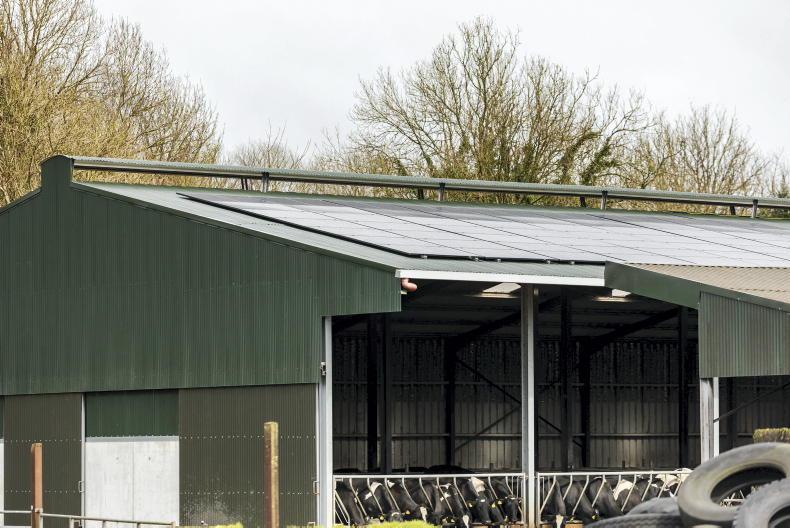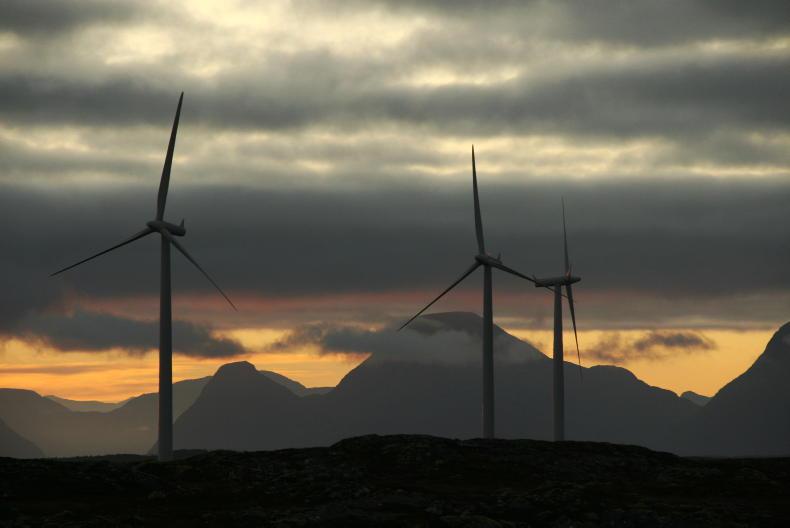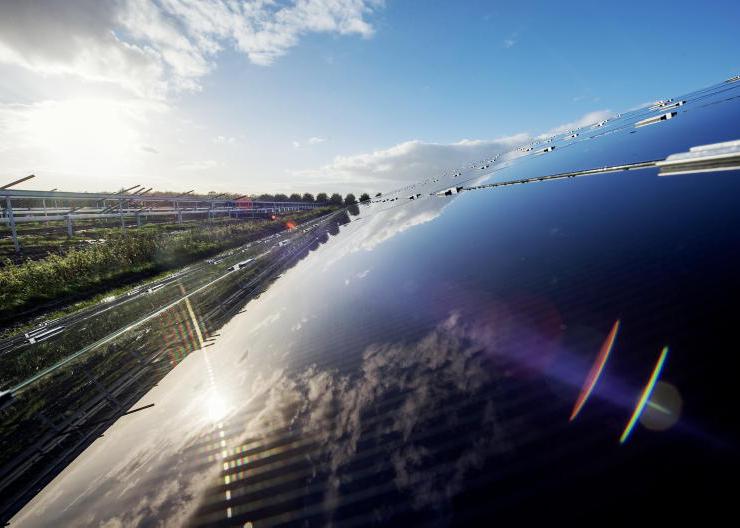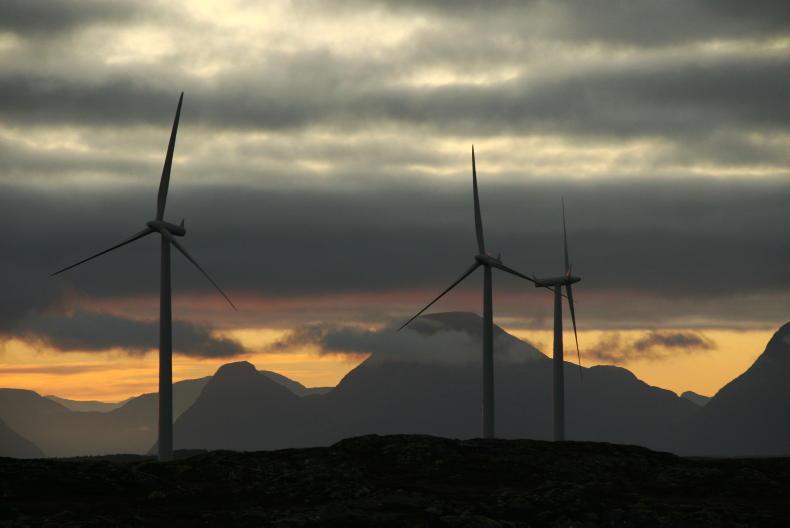Natural gas supplies 30% of all Ireland’s energy needs. Apart from the Corrib field, to which there was so much objection, an increasing share of our natural gas has to be imported from, or through, Britain.
The Corrib field is running out and our dependence on Britain for supplies will rise from 53% today to 90% by 2030 on present trends.
The electricity interconnector with France will not come on stream until 2027.
Depending on one supplier, Britain (with whom our political relations are bad), places us in an inherently vulnerable position.
We need a short-term as well as a long-term solution. Most of the solutions being talked of (hydrogen, offshore wind, building a LNG terminal, etc) are long-term and will be no use to us next winter.
Some 700,000 homes, mainly in built-up areas, use natural gas directly for heating.
Fifty per cent of all our electricity is generated using natural gas and electricity is vital for most farming operations.
The reliability of our power supply is the number one worry of the multinational firms located in Ireland, around which we have built such a successful and fast-growing economy.
Power failures scare investors. We need to think hard about all this because there was an alarming report in one of last Sunday’s papers about a risk that Ireland might be cut off from natural gas supplies coming from Britain next winter.
The basis for the story was that if a gas shortage occurred in the UK due to the continuing war in Ukraine, under a contingency plan now in preparation, the British natural gas grid operator would be instructed to stop supplying gas to our fellow EU members, the Netherlands and Belgium.
If it is legally possible for the UK to cut off these supplies to EU members, one must assume that it would also be legally feasible to cut off supplies to Ireland.
The UK ambassador to Ireland said that the UK would not do this and would “ensure gas supply to Ireland in the event of any emergency”.
He was confident the UK would have enough gas for next winter anyway. This assurance is welcome but it is given in the context of supply problems arising because of the war.
It is an open question whether the assurance would still hold in the event of a Brexit-related trade war breaking out between the EU and the UK. This is likely if the UK goes ahead with its threat and ceases to operate the Northern Ireland Protocol it signed in 2019.
This potential crisis of natural gas supply is simply accelerating a wider underlying electricity supply problem in Ireland
On the present parliamentary timetable, that Brexit-related crisis is something that could happen next winter, just as the electricity demand here is at its peak.
Potential crisis
We might have a very strong legal case on the protocol in international law, but law cases do not heat our homes, or power our farms.
This potential crisis of natural gas supply is simply accelerating a wider underlying electricity supply problem in Ireland.
Even without the war in Ukraine, we were already facing electricity shortages for the winters of 2022/3 to 2025/6, according to the Commission for the Regulation of Utilities.
In a report last year before the war, the Commission said we would need two new gas-fired stations, and a prolongation of the operation of older inefficient gas-fired plants just to maintain electricity supply. But what happens if we cannot even get the gas, at any price?
The Government is not unaware of the problem. It has promised to produce a strategy statement on the security of energy supplies by mid-2022.
It has been working on it since at least mid-2021.
But the war, started last February by Russia, changes all the assumptions on which that strategy has been prepared. So it is understandable that there has been some delay in the publication of the Government’s strategy.
On the other hand, a problem that was already very serious has now become acutely urgent as well.
We urgently need a transition fuel that will see us through until offshore wind and other renewables come on stream in sufficient quantity.
This may require substantial investment and may have to be a strategic rather than a purely commercial decision.
The debate in the media in Ireland today seems to be mainly about how to treat the symptoms of inflation. This needs to change.
We need to pull together as a people to solve the deep-seated problems – like power supply – for this and future generations.

John Bruton.
Natural gas supplies 30% of all Ireland’s energy needs. Apart from the Corrib field, to which there was so much objection, an increasing share of our natural gas has to be imported from, or through, Britain.
The Corrib field is running out and our dependence on Britain for supplies will rise from 53% today to 90% by 2030 on present trends.
The electricity interconnector with France will not come on stream until 2027.
Depending on one supplier, Britain (with whom our political relations are bad), places us in an inherently vulnerable position.
We need a short-term as well as a long-term solution. Most of the solutions being talked of (hydrogen, offshore wind, building a LNG terminal, etc) are long-term and will be no use to us next winter.
Some 700,000 homes, mainly in built-up areas, use natural gas directly for heating.
Fifty per cent of all our electricity is generated using natural gas and electricity is vital for most farming operations.
The reliability of our power supply is the number one worry of the multinational firms located in Ireland, around which we have built such a successful and fast-growing economy.
Power failures scare investors. We need to think hard about all this because there was an alarming report in one of last Sunday’s papers about a risk that Ireland might be cut off from natural gas supplies coming from Britain next winter.
The basis for the story was that if a gas shortage occurred in the UK due to the continuing war in Ukraine, under a contingency plan now in preparation, the British natural gas grid operator would be instructed to stop supplying gas to our fellow EU members, the Netherlands and Belgium.
If it is legally possible for the UK to cut off these supplies to EU members, one must assume that it would also be legally feasible to cut off supplies to Ireland.
The UK ambassador to Ireland said that the UK would not do this and would “ensure gas supply to Ireland in the event of any emergency”.
He was confident the UK would have enough gas for next winter anyway. This assurance is welcome but it is given in the context of supply problems arising because of the war.
It is an open question whether the assurance would still hold in the event of a Brexit-related trade war breaking out between the EU and the UK. This is likely if the UK goes ahead with its threat and ceases to operate the Northern Ireland Protocol it signed in 2019.
This potential crisis of natural gas supply is simply accelerating a wider underlying electricity supply problem in Ireland
On the present parliamentary timetable, that Brexit-related crisis is something that could happen next winter, just as the electricity demand here is at its peak.
Potential crisis
We might have a very strong legal case on the protocol in international law, but law cases do not heat our homes, or power our farms.
This potential crisis of natural gas supply is simply accelerating a wider underlying electricity supply problem in Ireland.
Even without the war in Ukraine, we were already facing electricity shortages for the winters of 2022/3 to 2025/6, according to the Commission for the Regulation of Utilities.
In a report last year before the war, the Commission said we would need two new gas-fired stations, and a prolongation of the operation of older inefficient gas-fired plants just to maintain electricity supply. But what happens if we cannot even get the gas, at any price?
The Government is not unaware of the problem. It has promised to produce a strategy statement on the security of energy supplies by mid-2022.
It has been working on it since at least mid-2021.
But the war, started last February by Russia, changes all the assumptions on which that strategy has been prepared. So it is understandable that there has been some delay in the publication of the Government’s strategy.
On the other hand, a problem that was already very serious has now become acutely urgent as well.
We urgently need a transition fuel that will see us through until offshore wind and other renewables come on stream in sufficient quantity.
This may require substantial investment and may have to be a strategic rather than a purely commercial decision.
The debate in the media in Ireland today seems to be mainly about how to treat the symptoms of inflation. This needs to change.
We need to pull together as a people to solve the deep-seated problems – like power supply – for this and future generations.

John Bruton.











SHARING OPTIONS